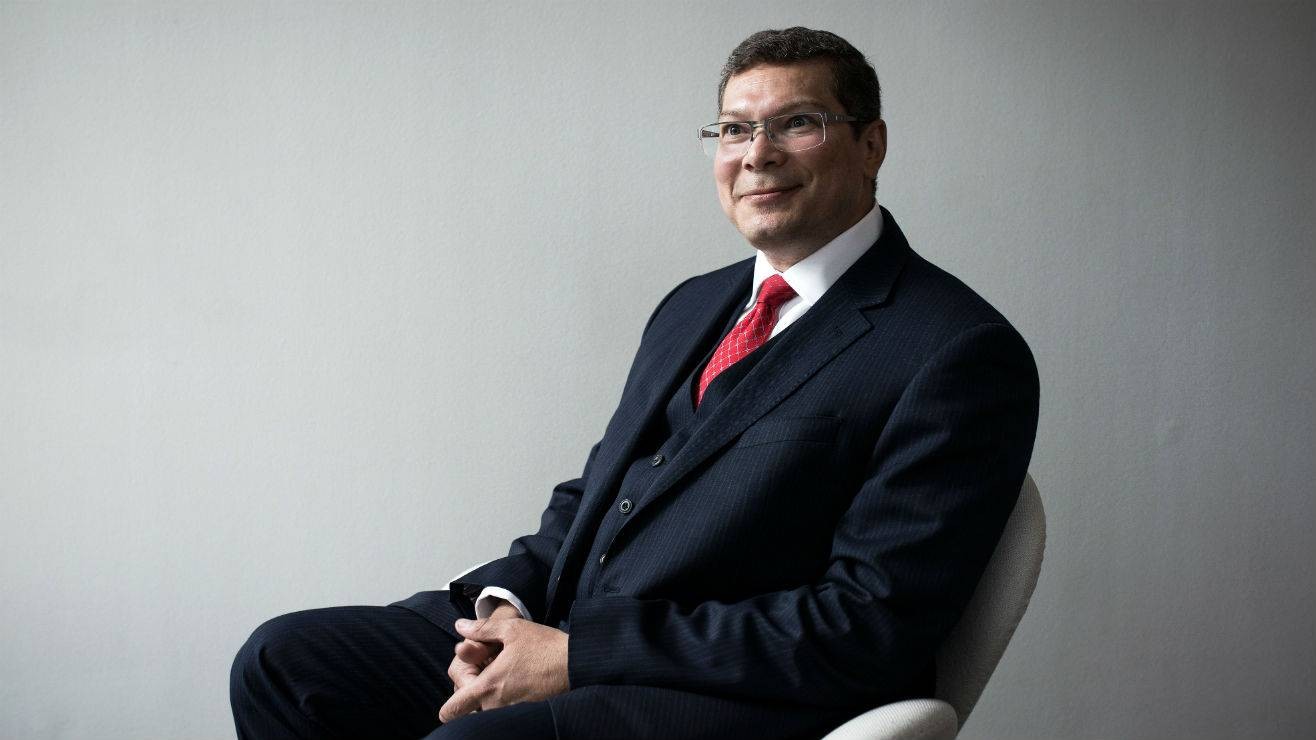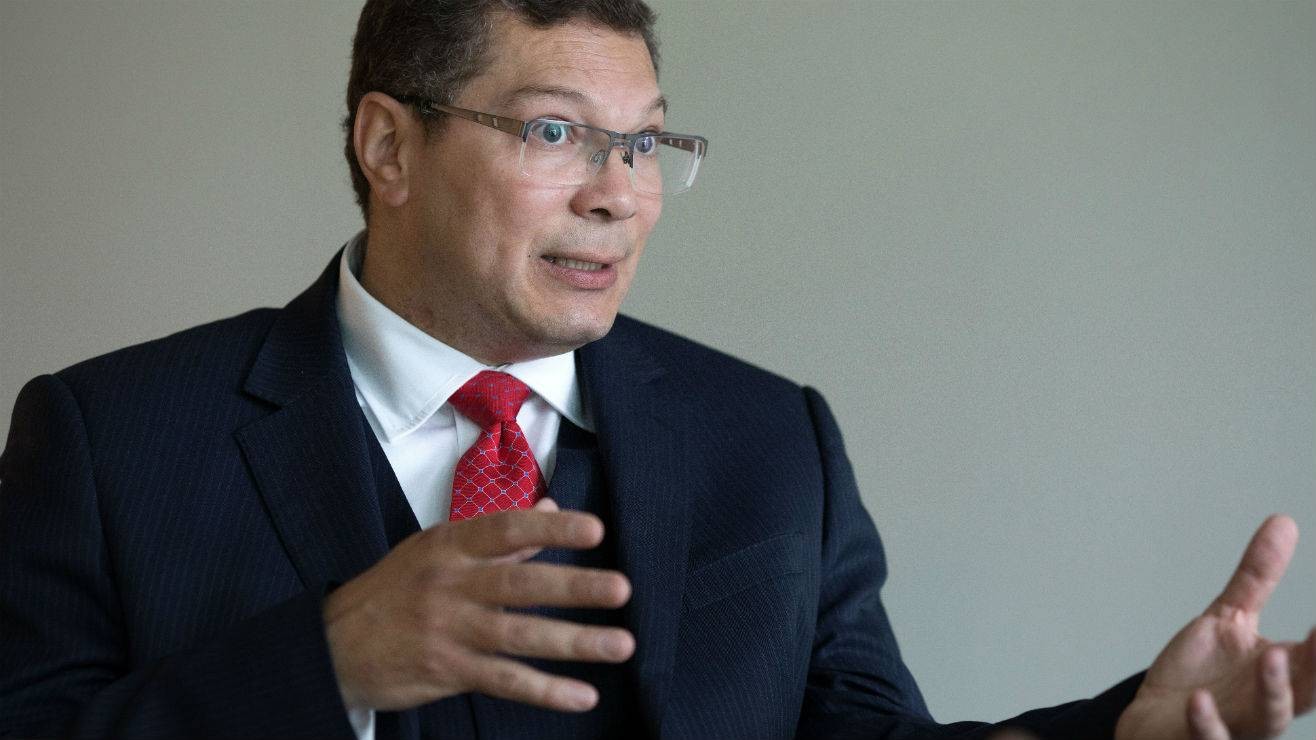
Rise of the machines
Artificial Intelligence (AI) might be everywhere now, but Dr. Isaac Ben-Akiva was studying it long before it became a buzzword. “I’ve been in the field of Artificial Intelligence for a long time,” says Barclays’ Director of Machine Learning.
“I was studying AI in the 90s, and at that time my PhD supervisor was asking me if I intended to stay in academia, because there was no job outside academia considering AI. There was nothing out there applying these theoretical things. To get to the stage we are today with major applications in business and throughout healthcare, physics, astronomy and so many other sectors is a huge development.
“Back in the 50s and 60s, the whole idea of Artificial Intelligence was science fiction and yet here we are, doing a lot of those things.”
Bringing data to life
The targets for AI solutions are varied, says Ben-Akiva: “We have use-cases that are customer facing – for example a recommendation system, chatbots, search engines etc. In the past there has been a tendency to recommend everything to every customer but now we can recommend the cashback rewards that are most interesting to the customer – the rewards that our data suggests the customer is most likely to use.

“Back in the 50s and 60s, the whole idea of AI was science fiction and yet here we are, doing a lot of those things.”
We can do that by using algorithms to analyse historical transactions and learning more about the customer. Even if we don’t have that much data for a given user, the algorithm can learn by analysing similar customers through income, age-group, location and so on.
It’s what Google does when recommending the next article for you to read, or Amazon does when recommending books. It’s a known application of machine learning in the market, but something banks can utilise for recommending the most suitable products or services to a customer.”
The first priority, he says, is “to enable the development of machine learning solutions throughout Barclays UK. The second step is establishing the standards, support and training throughout the bank.”
In his career, Ben-Akiva has developed software for everything from military drones to HR and marketing applications. He remains hands-on in terms of building his projects within Barclays: “I still code. I love coding, and do it for leisure. It’s about learning and trying new technologies, and when you’re learning there is no better way to see if you’re understanding it than to write your own code, and then try to find applicability for it.
Here at the bank, most of what I do is write a template or initial code and give to the teams to progress that, but it’s not my main function in the bank – where I’m trying to bring machine learning to life.”
Facing the future
One area of application that Ben-Akiva sees as “very promising and already happening” is cybersecurity: “There’s biometrics analysis – iris scanning and face recognition. In the future you can probably expect banks to be using your mobile phone as a means of you opening an account – where you can provide a scan of your passport, validating the picture using your selfie camera to show the picture on the passport is a living person not a video or mask or whatever else.”

“Thanks to deep learning, you can talk to machines now and get reasonable answers in natural language back”
Ben-Akiva can also envisage a world where “you won’t even need your debit card or phone to go through the tube gates”. The step-change of contactless could be replaced by an AI-driven facial recognition system, as in the supermarket prototypes being built by Amazon.
“Thanks to deep learning, you can talk to machines now and get reasonable answers in natural language back,” he adds. “Computer vision has also made a huge leap in the last five years with the development of convolutional neural networks – analysing visual imagery – so we can identify any object or face with almost 100% accuracy.”
But in the real, present-day world, how can such changes be driven by the large, heavily-regulated organisations? “Barclays is a big organisation, and it’s a big organisation within financial services where there are a lot of regulations we need to be careful with. And we’re dealing with very sensitive customer data. People’s lives are often in our hands, and whatever we do here has practical consequences, and we need to be careful.
The right governance is in stage at every stage of development. So, this means the process takes time – and the bank has different business units which need to be synchronised. But that, for me, is all part of the fun.”
Testing the model
In developing a new project, Ben-Akiva first sets out the business requirement and the success criteria. He and his team then identify the sources of the data, after which there’s a phase of exploring and preparing the data. “Usually, for any machine learning data scientist, preparing the data for running the model takes eighty per cent of the time,” he says. “Then you go through model development, separating data sets between training and test data.
You train the model on the training data and test on the test dataset, and see how it abides with your metrics.
In the future you can probably expect banks to be using your mobile phone as a means of you opening an account.
Then you decide whether to fine-tune the parameters for accuracy. Run the model again until you’re happy. Then you go for a pilot, having presented the model to the business. For the pilot you need to revalidate and retrain the new data. And after that, you go into production.”
This long process shows the vital importance of Big Data to machine learning: “Twenty years ago we couldn’t run models with any confidence because of a lack of data,” says Ben-Akiva. “The other big change has been simply in the power of computers. Those are the key ingredients for machine learning and for deep learning, which needs massive data to extract relevant patterns.”
As data sets grow, and machine learning improves, does Ben-Akiva see concern that some of his Barclays colleagues could be automated into obsolescence? “Frankly speaking, I haven’t, yet. The projects we’ve undertaken have been to enhance, not replace, our colleagues. It’s about things like how can I help our call centre answer a customer’s concern better, to the extent of being proactive.”